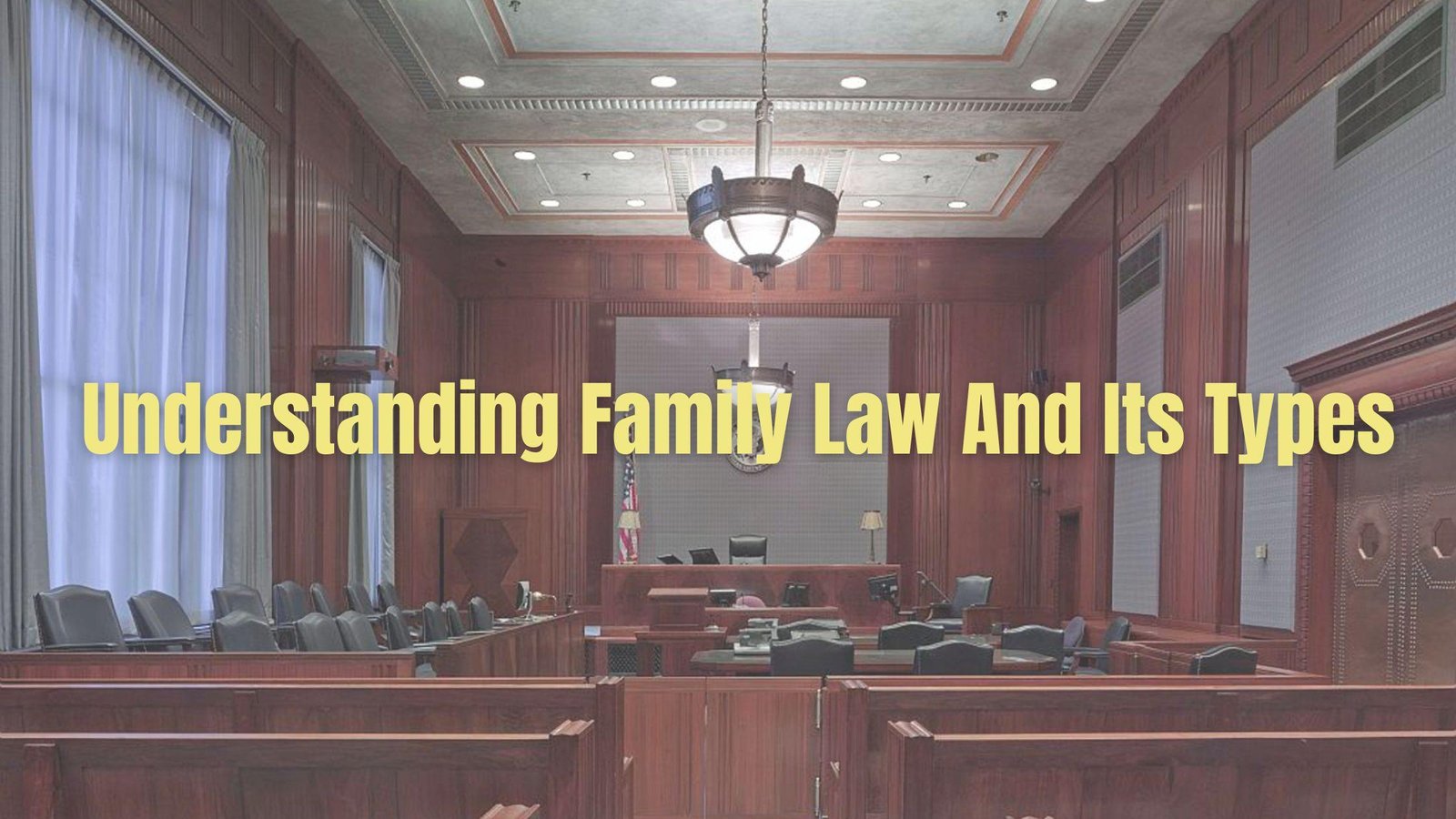
Understanding Family Law And Its Types
It is quite evident that family law is a vital branch of legal practice. Basically, it focuses on issues that affect families and domestic relations. To those unaware, this area of law encompasses a wide variety of topics, from marriage and divorce to child custody and adoption. Overall, understanding family law can help people navigate the complexities of family-related legal matters. If you are someone willing to know more about it? If so, this article will help you.
What is Family Law?
In simpler terms, family law is a legal field focusing on issues related to families and domestic relationships.
Typically, lawyers who practice family law handle numerous cases ranging from divorce proceedings to child custody and alimony matters. Family law aims to provide fair and just resolutions to disputes within a family.
Types of Family Law
Family law covers several types of legal issues. Each type addresses specific aspects of family life and domestic relations.
- Marriage and Civil Unions
Marriage and civil unions are foundational elements of family law. This type of law governs the legal requirements for marriage and civil unions, including age, consent, and licensing. It also addresses prenuptial agreements, which are contracts between prospective spouses outlining the division of assets in the event of a divorce.
- Divorce and Annulment
Divorce and annulment are legal processes that terminate a marriage. Divorce involves the dissolution of a marriage by legal means, while an annulment declares a marriage legally non-existent as if it never occurred. Divorce can be contested or uncontested, affecting the complexity and duration of the process.
- Child Custody and Support
Child custody and support are critical components of family law. These laws determine which parent will be responsible for the child’s care and upbringing. Child custody can be jointly or solely held, depending on the circumstances. Child support ensures that the non-custodial parent contributes financially to the child’s upbringing.
- Adoption and Foster Care
Adoption and foster care are legal processes that provide permanent or temporary homes for children who cannot live with their biological parents. Adoption involves the legal transfer of parental responsibilities from the biological parents to the adoptive parents. Foster care places children in temporary homes until a permanent solution is found.
- Domestic Violence and Protection Orders
Domestic violence is a serious issue addressed by family law. It involves physical, emotional, or psychological abuse within a family or domestic setting. Protection orders, also called restraining orders, are legal documents that protect victims from their abusers by restricting the abuser’s contact with the victim.
- Spousal Support and Alimony
Spousal support, also referred to as Alimony, is a financial commitment one spouse may have to the other after a divorce. The purpose of spousal support is to help the lower-earning spouse keep up a similar standard of living after divorce. The amount and duration of spousal support depend on variety of factors, including the duration of the marriage and the financial situation of both parties.
- Division of Property
Property division is a crucial aspect of divorce proceedings. Property division is a critical element of divorce litigation. It involves the equitable apportionment of marital assets and liabilities. Marital assets and liabilities include all assets and debts acquired during the marriage. The division can be complex, requiring the evaluation of financial assets, real estate, and personal property.
Now that you are aware of the types let’s get into their importance.
Why Understanding Family Law is Important?
Understanding family law is essential for several reasons. Here’s a quick breakdown for you.
- It helps people make informed decisions about their legal rights and responsibilities.
- Moreover, it ensures that parties involved in family disputes are aware of their options and can seek fair and just outcomes.
The Role of Family Lawyers
Family lawyers play a crucial role in navigating the complexities of family law. They provide legal advice, represent clients in court, and negotiate settlements. Basically, their expertise ensures that their clients’ rights are secured and that legal processes are followed correctly. But how to choose the right lawyer?
How to Choose a Family Lawyer
Choosing the right family lawyer is vital for resolving family disputes effectively.
So, when selecting a lawyer, consider their experience, reputation, and communication skills. A good family lawyer should be empathetic, understanding, and able to provide practical solutions.
Final Thoughts
Overall, family law is a diverse and essential field that addresses various aspects of family life and domestic relations. From marital issues to child custody and adoption, family law strives to protect the rights and well-being of individuals within a family. And therefore, understanding family law and its types can help people navigate legal processes and seek fair outcomes. If you’re someone looking for legal assistance or guidance, Innerwork can help you.
Also Read: Understanding The Role Of A Job Legal Advisor In Corporate Settings






